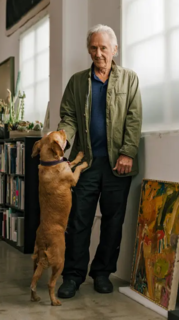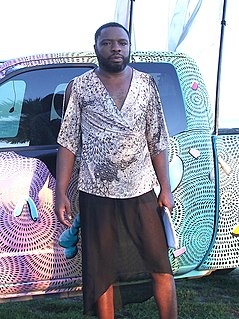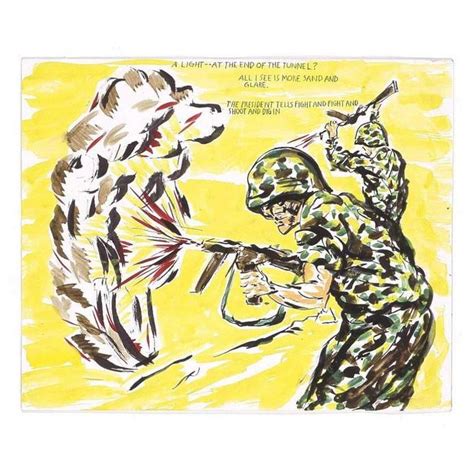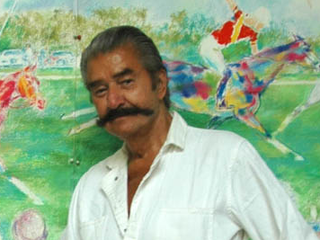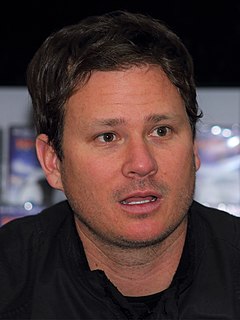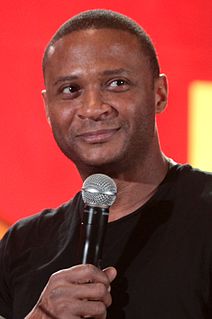A Quote by Edward Ruscha
The big pay-off was to work as an artist and gain some shred of respect from your friends, who were also artists. But there was never any notion that you could make a living out of art. On the rare occasions you had a gallery show, and sold a little work, well, that was just gravy.
Related Quotes
There was no hope for any kind of big opportunity. I'm not saying it was hopeless. The big pay-off was to work as an artist and gain some shred of respect from your friends, who were also artists. But there was never any notion that you could make a living out of art. On the rare occasions you had a gallery show, and sold a little work, well, that was just gravy.
I had just been doing graffiti around New York and this real estate investor guy had walked through meat packing in New York and saw some of my graffiti. He was impressed and asked if I sold canvases. I really had not made any canvases of my graffiti work yet, but told him I could make one for him. He then commissioned me to make ten paintings and put on my first art show. Between the sold out show and the cops chasing after me it created a lot of media and I've been doing really well since then.
A work of art does not need an explanation. The work has to speak for itself. The work may be subject to many interpretations, but only one was in the mind of the artist. Some artists say to make the work readable for the public is an artist’s responsibility, but I don’t agree with that. The only responsibility to be absolutely truthful to the self. My work disturbs people and nobody wants to be disturbed They are not fully aware of the effect my work has on them, but they know it is disturbing.
I'm actually looking for a gallery, but the thing is some galleries just want to show the video work and some are just interested in the 2-D work. It has to be a gallery where I can do the 2-D collages, the video, and live performance, where it's not this weird conflict, where it can all move forward.
I enjoy doing my work, and I don't want to deal with the other things. When you enjoy doing your work so much, why deal with where to show, how to show, what to do? If the artist finds the right gallery which respects their work and gives them that freedom to do whatever they want to do, the artist can focus on his work.
Most artists are brought to their vocation when their own nascent gifts are awakened by the work of a master. That is to say, most artists are converted to art by art itself. Finding one's voice isn't just an emptying and purifying oneself of the words of others but an adopting and embracing of filiations, communities, and discourses. Inspiration could be called inhaling the memory of an act never experienced. Invention, it must be humbly admitted, does not consist in creating out of void but out of chaos. Any artist knows these truths, no matter how deeply he or she submerges that knowing.
My drawing came out of editorial-style cartoons. Music was one thing and art was another, and there weren't really any standards for my art. My work was just drawings. They weren't done with any aspirations of becoming a part of punk scene. They weren't about punk. They were just collections of drawings, some of which I xeroxed and sold.
I like working. I wish I could say I made a deliberate choice to comedy, but it's just what came my way. It's what the studios wanted to make. Some of my friends were doing it, like Will Ferrell and Adam McKay, and they offered me 'Talladega Nights.' It's just nice work if you can get it. It's a joyful day at work, making your friends laugh.
The art is more important than the artist. The work is more important than the person who does it. You must be prepared to sacrifice all the you could possibly have, be, or do; you must be willing to go all the way for your art. If it is a question between choosing between your life and a work of art -- any work of art -- your decision is made for you.
When you work with a major label they create their own message for you and a lot of the time that works great, or at least it did back in the 90's but now it doesn't work, so I think as an artist if you learn your own business, like anybody would when they want to start a little restaurant - they'd figure it out and then build it and they work hard - then it could be your own little business that you grew to as big as you want it to be but you had much more control with how to communicate it and how it's cared for.
The problem of making artists talk about their work is that when they're making their work the left-brain is shut off. So if you talk to an artist about it, you're talking to someone who wasn't there. It's hopeless. And also it's insulting. It's implying that the work is not an adequate account of itself. To me, the greatest artists are almost entirely non-verbal.
The first house I bought was a little Spanish bungalow on Clinton Street in West Hollywood, right behind the Improv. I was renting it, and I asked the owners if I could buy it, and they were really nice and let me work out a deal. And I fixed it up and later sold it. That was when I realized that if you make some improvements, you can make money.
